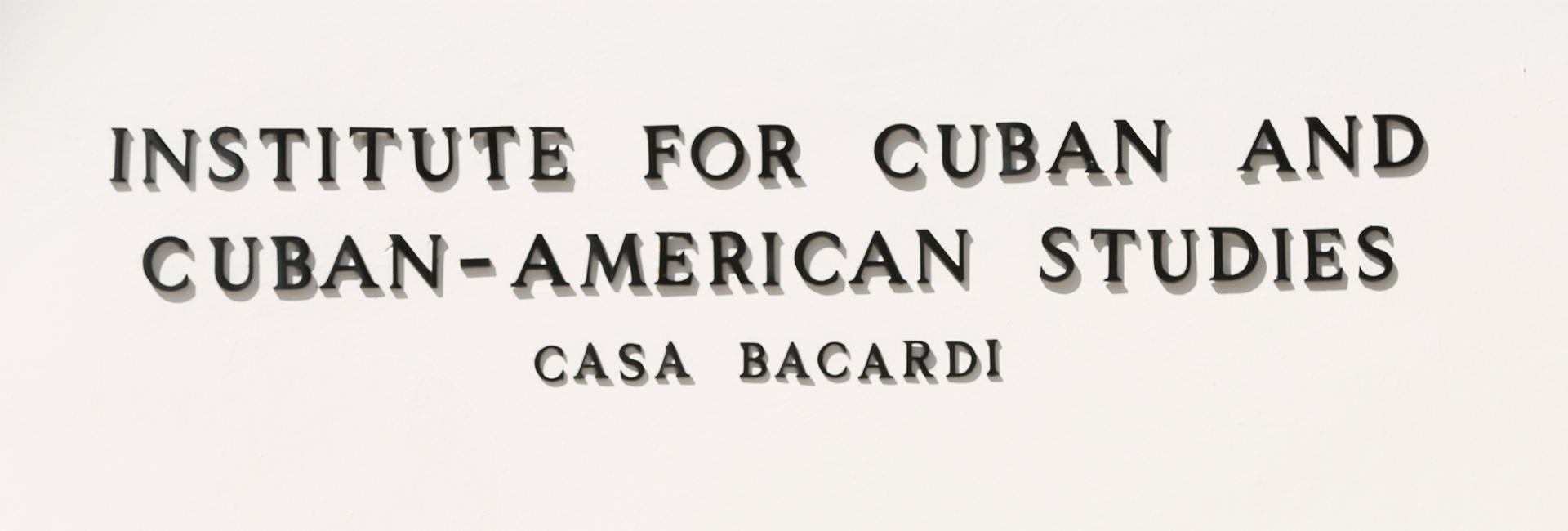
The University of Miami’s Institute for Cuban and Cuban-American Studies, established in 1999, provides academic and cultural insight on Cuba.
When the so-called “wet foot, dry foot” policy toward Cubans emigrating to the United States was repealed in early January 2017, the phones at University of Miami’s Institute for Cuban and Cuban-American Studies (ICCAS) rang off the hook.
Most calls were from members of the press seeking the reaction of its experts on the repeal of a policy that gave special status to Cubans.
Since it was founded 18 years ago, ICCAS has been a staple in the South Florida community and a top venue for Cuban and Cuban-American scholarship and academic research.
Housed in Casa Bacardi on the Coral Gables campus, the Institute has served as a think tank and cultural center, sponsoring academic and outreach programs on Cuba, offering non-credit courses on Cuban history and culture, producing publications and videos, and sponsoring events and original research.
ICCAS has also attracted numerous non-profits and other organizations interested in Cuba and its complexities. Local, national and international press has often looked to the Institute’s experts for world-class analysis and academic knowledge on the study of the island.
“The Institute is a treasure trove of knowledge and insight on any topic that has to do with Cuba’s past, present and future, ” said Andy Gomez, one of the Institute’s founding members and now its interim director. Gomez took over as interim director after Jaime Suchlicki, who served as director of ICCAS since its inception, retired in August 2017.
With the fall of the Berlin Wall and a newly post-Soviet Union world, Cuba, a close ally of the USSR, went through a transition period. ICCAS received funding for the Cuban Transition Project (CTP) from the U.S. Agency for International Development (USAID) to study and make recommendations for the reconstruction of Cuba in the event of a post-Castro transition. As part of the project, ICCAS published Focus on Cuba, a monthly analytical report addressing current events; Cuba Facts, fact sheets with statistical data on key topics; and Enfoque Economico, a monthly economic analysis published in Spanish.
As a meeting place, ICCAS has organized relevant panels and lectures that draw hundreds of attendees. It has also held press conferences and expert panels to analyze Cuban politics with noted Cuban thinkers including Carlos Alberto Montaner, Carlos Eire and Luis Aguilar Leon.
Many U.S. government officials and Latin American leaders have visited the Institute, as have many other prominent figures including Lech Walesa, the renowned Polish dissident, Yoani Sanchez, the Cuban independent journalist, and Berta Soler, one of the leaders of the Damas de Blanco, a prominent dissident group in Cuba.
Casa Bacardi has served as a meeting place for many and has even showcased musical talents such as singers Amaury Gutierrez, Vicky Roig and Oscar D’Leon under the auspices of “Grandes Leyendas Musicales Cubanas,” a project that was spearheaded by Eloy Cepero. Each musician was interviewed by Cepero and those interviews can be found at the Cuban Heritage Collection at UM Libraries.
ICCAS has produced publications on the cultural, economic and political realities of the Caribbean island. The Institute has also produced videos including one on the History of Cuba, which was done in English to attract younger audiences, and another one on Jazz Latino, which traced the influence of Cuban and other Latin music on present day jazz music.
- BARBARA GUTIERREZ / UM News
About the Photo
ICCAS is located in Casa Bacardi on the University of Miami Coral Gables campus.
Join the Conversation:
Follow on
Twitter:
ICCAS, @ICCAS_UM
University of
Miami, @univmiami
UM News, @univmiaminews
